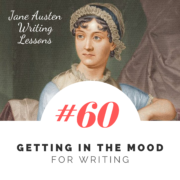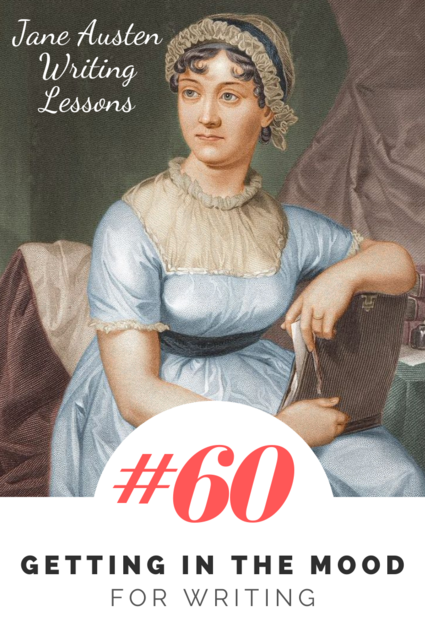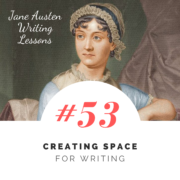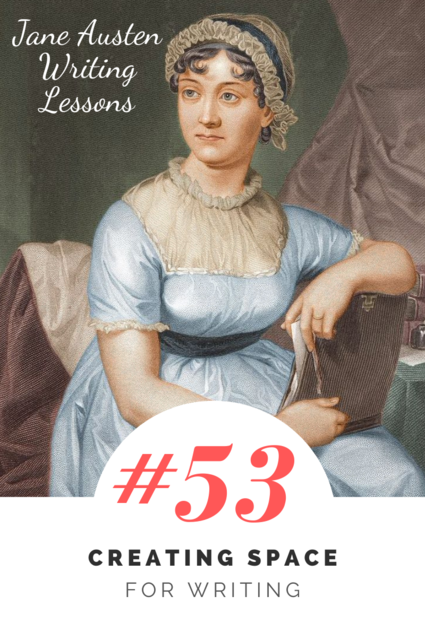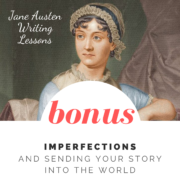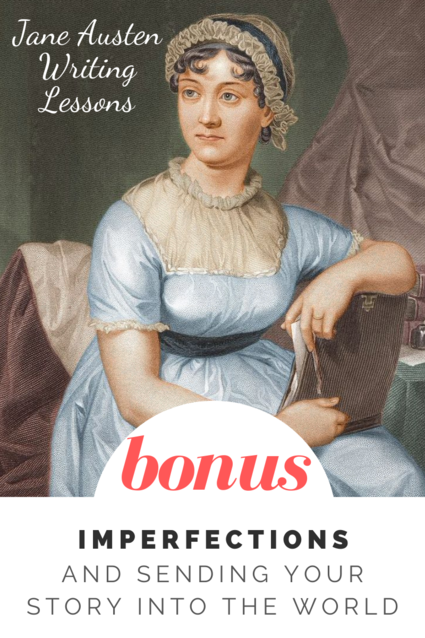#60: Getting in the Mood for Writing
There are days when writing comes easily for me: when I’m excited to get started, when I feel a spark, an unstoppable drive to write.
But then there are plenty of times when I have the time to write, when I’ve scheduled and planned out writing time, and I get to the computer and have a difficult time getting started.
Jane Austen had her difficult writing days as well. In a previous post, I discussed how distractions (like visitors and thoughts of mutton) made writing more difficult for her. There were also other days when she found difficulty writing because she was fatigued or because her pen was too hard.
On October 26, 1813, Jane Austen wrote a letter to her sister Cassandra and in her very first paragraph noted: “I am at all in a humour for writing.”
It’s comforting that Jane also had days where she was not in the mood to write. But what’s interesting is that her sentence doesn’t end there: she uses a semicolon. Here’s the full statement:
I am not at all in a humour for writing; I must write on till I am.
For Austen, the solution to not being in the mood for writing is simple: to write.
I’ve found that 95% of the time, this works for me too. If I can sit down and truly write (without getting distracted by twitter or anything else), then I start to feel like writing. A lot of times I set a timer for 30 minutes. I make a commitment to myself: I don’t feel like writing, but I have to do at least 30 minutes. And then I can walk away. But by the end of the 30 minutes, most of the time I am in the mood for writing and keep on going.
The 5% of the time when this doesn’t work for me, there’s something else going on. Mary Robinette Kowal has an excellent blog post titled “Sometimes Writers Block is Really Depression” where she talks about some of these other reasons we get stuck and don’t feel like writing, whether it’s plot problems or depression. Recognizing what the plot problem is can often help me get in the mood for writing. In the case of depression, taking steps like Mary Robinette did can help me improve my mental well being and make realistic goals for myself, which, in turn, can help me be in the mood for writing.
How do you get in the mood for writing? How do you get past the difficulty of starting? It doesn’t have to be Jane Austen’s method, but if you can figure out what works for you, it will help you make more of your writing sessions feel worthwhile. I know some writers who have a song they always listen to before writing, or who meditate for five minutes. I know some writers who think about their story while taking a shower, and then sit down at the page. I know some writers who turn off the internet or hide their phone. Regardless, whether it’s deciding to write until you feel like writing, or using another method, there truly are things you can do to put yourself more in the mood for writing.
If you have other methods that help get you in the mood for writing, please share in the comments!
Exercise 1: Plan out a few writing sessions for the next week. These don’t have to be long. And then when it is time for these sessions, write even if you don’t feel like writing.
Exercise 2: Spend fifteen minutes writing in a form that you don’t normally use to write. This might be in a notebook, in cursive, through dictation, on notecards, etc. Then reflect on the experience: how did this change your writing process and your thoughts about writing?

